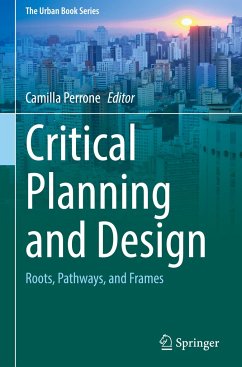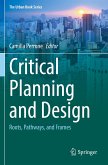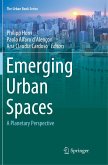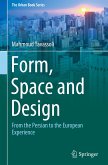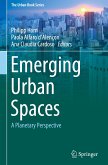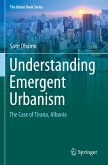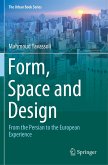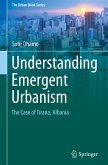The book interprets and recombines, within a subjective trajectory, some roots, pathways and conceptual frames of the planning thought that worked either as dissenting imaginations or generative source to critically question the modernist epistemologies. 'Critical planning and design' is presented in this book as a field of research inspired by critical urban theory and developed along with ideas and theories that prove to be radical, alternative, dialectical to the mainstream history of planning.
In this book, scholars present what they consider as the most important books in the field of planning, public policy and design. They have been asked to write about a book and its author, in their preferred manner. This freedom allowed passionate and original contributions.
Three main threads - the three parts of the book - shape the choices of the authors. The first concerns the reconstruction of some genealogical roots of planning (including Cerdà, YonaFriedman, Alberto Magnaghi, and Ian McHarg). The second thread groups the authors who dialogue with contemporary protagonists of the planning debate (including John Friedmann, Leonie Sandercock, Doreen Massey, David Harvey, Tom Sievert, and Patzy Healey). The third thread includes authors who dig into relevant writings in social and philosophical sciences (including Max Weber, Charles Lindblom, Henri Lefebvre, Gilles Deleuze & Félix Guattari, Georges Didi-Huberman, Robert Nozick, Pand hilip K Dick).
The book is addressed to researchers of planning and urban studies, who value the critical re-reading of some fundamental books. Including thoughtful and critical arguments on influential thinkers of the past two centuries, the book will enable students, scholars and researchers of planning, design, political science, geographical, environmental, and urban studies to better understand the socio-spatial and ecological transformations under the contemporarytransitionwhile relying on a "usable past". The book is also addressed to a wider audience of readers interested in the problems of the city and space.
In this book, scholars present what they consider as the most important books in the field of planning, public policy and design. They have been asked to write about a book and its author, in their preferred manner. This freedom allowed passionate and original contributions.
Three main threads - the three parts of the book - shape the choices of the authors. The first concerns the reconstruction of some genealogical roots of planning (including Cerdà, YonaFriedman, Alberto Magnaghi, and Ian McHarg). The second thread groups the authors who dialogue with contemporary protagonists of the planning debate (including John Friedmann, Leonie Sandercock, Doreen Massey, David Harvey, Tom Sievert, and Patzy Healey). The third thread includes authors who dig into relevant writings in social and philosophical sciences (including Max Weber, Charles Lindblom, Henri Lefebvre, Gilles Deleuze & Félix Guattari, Georges Didi-Huberman, Robert Nozick, Pand hilip K Dick).
The book is addressed to researchers of planning and urban studies, who value the critical re-reading of some fundamental books. Including thoughtful and critical arguments on influential thinkers of the past two centuries, the book will enable students, scholars and researchers of planning, design, political science, geographical, environmental, and urban studies to better understand the socio-spatial and ecological transformations under the contemporarytransitionwhile relying on a "usable past". The book is also addressed to a wider audience of readers interested in the problems of the city and space.

